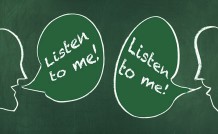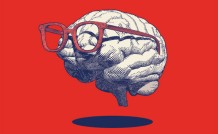Online Class: Anxiety Therapy 101

no certificate
with CEU Certificate*
-
8Lessons
-
11Exams &
Assignments -
7,357Students
have taken this course -
5Hours
average time -
0.5CEUs
Course Description
Welcome to "Anxiety Therapy". In today's hyper-stimulated society, more people than ever are suffering from the inability to process stress, trauma- and even daily life with ease. This has led to a sharp increase in anxiety related conditions and has made it necessary for both the common person, as well as professionals to learn about beneficial coping strategies and therapies to minimize the impact.
When the average person thinks about the term "anxiety," often what may come to mind is a person who worries excessively, or who may have a nervous habit or tick. And while these can be manifestations of anxiety, this type of condition can include symptoms that far exceed general nervousness. If left untreated, some forms of anxiety can venture into the realm of being harmful, or can even lead to accidental death or suicide.
Life is fraught with frustrations, stress, and occasional disappointments. It is normal to feel bouts of anxiety at times. However, when the worry or fear becomes constant or immobilizing, it has turned from being a healthy form of caution and self-preservation, to a condition in need of attention. Similarly, a person may have an aversion to something -- such as a snake or specific type of food. However, if that aversion turns into an uncontrollable and irrational fear where they imagine snakes at every turn, or develop an eating disorder, treatment should be sought immediately.
What is Anxiety?
The human body is an amazing vessel that carries out thousands of operations every minute. Despite early thoughts that the mind is separate from the body, ongoing research shows an undeniable link between our mental, emotional, and physical states. And while stress is a normal part of life, a consistent inability to cope with everyday stressors, or experiencing persistent fear or worry, is a sign of a bigger problem.
Course Motivation
What Causes Anxiety?
There are many factors that can potentially influence the development of anxiety. Some of these are internal biological factors, while others are external.
Chemical messengers known as neurotransmitters and hormones are among the internal elements that influence mood and anxiety. Both of these work to transmit signals from the brain and regulate physical, mental, and emotional health. Any imbalance in these critical brain chemicals has the potential to dramatically alter mood and interfere with a person's ability to cope with stress or trauma effectively. This can account for the sudden or progressively erratic behavior shown by some individuals experiencing severe anxiety or depression.
Neurotransmitters are chemical messengers produced inside a neuron, which travel and attach themselves to the receptor points of cells and other neurons. Neurotransmitters are classified as two main types: Excitatory neurotransmitters, which cause the neuron or cell to fire or produce an action (example -- adrenaline) and Inhibitory neurotransmitters, which cause the neuron to suppress an action (example -- serotonin).
When a neurotransmitter is triggered because of fear or uncertainty, the brain secretes adrenaline, also known as epinephrine. This is both a neurotransmitter and a hormone, which affects almost every part of the body. Adrenaline is the chief chemical messenger responsible for activating the body's "fight or flight" mechanism, which is activated in the presence of danger.
Adrenaline is a beneficial substance, as it keeps us out of harm's way and provides an extra boost of energy to get through trying times. However, in modern times there seems to be a never-ending barrage of stimulation, which triggers the body's stress response and provides a perpetual flow of adrenaline. Over time, a state of hyperactivity, anxiety, and even paranoia can result.
A hormone is also a chemical messenger that travels through the bloodstream and delivers instructions to various cells and organs, letting them know when to stop, start, or accelerate a process. In addition to impacting mental and emotional balance, hormones regulate hunger, fat storage, sleep and other functions. An inability for hormones to work as needed can cause both mental and physical problems that can lead to anxiety.
Take, for example, the hormone melatonin. This powerful hormone is manufactured in the pineal gland, which is located in the brain. Melatonin is responsible for regulating the body's internal time clock, as well as its biological clock. One component of this is sleep cycle regulation. However if there is a disruption of melatonin production, this can lead to restlessness and eventually insomnia -- the inability to fall asleep even when tired. As you can imagine, chronic sleep deprivation can lead to severe irritability, forgetfulness, and anxiety.
In addition to irregularities in the internal workings of the body, outside elements, such as stress, diet and trauma can all influence our emotional state and set the stage for the development of an anxiety disorder.
Common Types of Anxiety
Anxiety presents itself in many forms, but the most common forms, as defined by the National Institute for Mental Health, are:
- General Anxiety Disorder
- Obsessive Compulsive Disorder (OCD)
- Panic Disorder
- Social Phobia
- Post-traumatic Stress Disorder
Other forms of anxiety include agoraphobia, childhood anxiety, separation anxiety, and various eating disorders. A person can develop anxiety or a phobia for any reason and it may not necessarily be mentioned in the list above. However, throughout this course, you will learn about a broad range of therapies that can be beneficial in addressing most cases of anxiety.
Conclusion
Anxiety is the inability to process and respond effectively to the ups and downs of everyday life. People with anxiety are chronically worried and anxious about real events, but also about events and threats that are unfounded. Anxiety comes in many forms and can be triggered by a number of things, including brain chemical imbalance, trauma, abuse, and diet.
- Completely Online
- Self-Paced
- Printable Lessons
- Full HD Video

- 6 Months to Complete
- 24/7 Availability
- Start Anytime
- PC & Mac Compatible
- Android & iOS Friendly
- Accredited CEUs

Course Lessons
Lesson 1: Introduction to Anxiety
 Lesson 1 Video
Lesson 1 Video Lesson discussions: Do you suffer from anxiety?; Reasons for Taking this Course
Lesson discussions: Do you suffer from anxiety?; Reasons for Taking this Course Complete Assignment: Introduction
Complete Assignment: Introduction Complete Assignment: Do You Have Anxiety?
Complete Assignment: Do You Have Anxiety? Assessment: Lesson 1 Exam
Assessment: Lesson 1 Exam
Lesson 2: General Anxiety Disorder
 Lesson 2 Video
Lesson 2 Video Assessment: Lesson 2 Exam
Assessment: Lesson 2 Exam
Lesson 3: Obsessive Compulsive Disorder (OCD)
 Lesson 3 Video
Lesson 3 Video Assessment: Lesson 3 Exam
Assessment: Lesson 3 Exam
Lesson 4: Panic Disorder
 Lesson 4 Video
Lesson 4 Video Assessment: Lesson 4 Exam
Assessment: Lesson 4 Exam
Lesson 5: Social Anxiety Disorder
 Lesson 5 Video
Lesson 5 Video Assessment: Lesson 5 Exam
Assessment: Lesson 5 Exam
Lesson 6: Post-Traumatic Stress Disorder
 Lesson 6 Video
Lesson 6 Video Assessment: Lesson 6 Exam
Assessment: Lesson 6 Exam
Lesson 7: Childhood Anxiety
 Lesson 7 Video
Lesson 7 Video Assessment: Lesson 7 Exam
Assessment: Lesson 7 Exam
Lesson 8: Anxiety and Eating Disorders
 Lesson 8 Video
Lesson 8 Video Lesson discussions: End of Course Poll; Program Evaluation Follow-up Survey (End of Course); Course Comments
Lesson discussions: End of Course Poll; Program Evaluation Follow-up Survey (End of Course); Course Comments Assessment: Lesson 8 Exam
Assessment: Lesson 8 Exam Assessment: The Final Exam
Assessment: The Final Exam
Learning Outcomes
- Define what an anxiety disorder is and how it can be triggered.
- Identify Obsessive Compulsive Disorders (OCD) and how to cope with them.
- Describe panic disorders and social anxiety disorders and how to deal with them.
- Describe and identify Post-Traumatic Stress Disorder and ways to cope with them.
- Describe what childhood anxiety is and how it manifests itself in children.
- Recognize anxiety and eating disorders and how to cope with these disorders and seek professional help.
- Demonstrate mastery of lesson content at levels of 70% or higher.
Additional Course Information

- Document Your Lifelong Learning Achievements
- Earn an Official Certificate Documenting Course Hours and CEUs
- Verify Your Certificate with a Unique Serial Number Online
- View and Share Your Certificate Online or Download/Print as PDF
- Display Your Certificate on Your Resume and Promote Your Achievements Using Social Media

Choose Your Subscription Plan
No Certificate / No CEUs
This course only
| Includes certificate | X |
| Includes CEUs | X |
| Self-paced |

|
| Instructor support |

|
| Time to complete | 6 months |
| No. of courses | 1 course |
Certificate & CEUs
This course only
| Includes certificate |

|
| Includes CEUs |

|
| Self-paced |

|
| Instructor support |

|
| Time to complete | 6 months |
| No. of courses | 1 course |
Certificates & CEUs
Includes all 600+ courses
| Includes certificate |

|
| Includes CEUs |

|
| Self-paced |

|
| Instructor support |

|
| Time to complete | 12 Months |
| No. of courses | 600+ |
Certificates & CEUs
Includes all 600+ courses
| Includes certificate |

|
| Includes CEUs |

|
| Self-paced |

|
| Instructor support |

|
| Time to complete | 24 Months |
| No. of courses | 600+ |
Student Testimonials
- "This course was educational and informative. The lessons, supplemental resources, and videos included in this course were all very helpful. The course itself is great and I can't think of anything to add or include to it." -- Donnie A.
- "As a person with anxiety, I felt this course was informative even to me regarding information I did not know." -- Anastasia P.
- "Very informative, useful course. I learned a tremendous amount of information in a short period of time. A great refresher course!" -- Sharon H.
- "It was very informative, and I liked learning about everything covered." -- Tonya A.
- "Very professional and helpful learning." -- Paul L.
- "the instructor is very helpful, no change needed." -- Joann M.
- "Excellent instructor." -- Marta C.
Related Courses
-
 6 hours
0.6 CEUs
Social Anxiety 101
$95.00
6 hours
0.6 CEUs
Social Anxiety 101
$95.00
-
 6 hours
0.6 CEUs
Emotional Healing 101
$95.00
6 hours
0.6 CEUs
Emotional Healing 101
$95.00
-
 5 hours
0.5 CEUs
Listening Skills 101
$95.00
5 hours
0.5 CEUs
Listening Skills 101
$95.00
-
 5 hours
0.5 CEUs
Anger Management 101
$95.00
5 hours
0.5 CEUs
Anger Management 101
$95.00
-
 7 hours
0.7 CEUs
Personality Development
$95.00
7 hours
0.7 CEUs
Personality Development
$95.00
-
 5 hours
0.5 CEUs
Mastering Conversation Skills
$95.00
5 hours
0.5 CEUs
Mastering Conversation Skills
$95.00
-
 5 hours
0.5 CEUs
Creative Thinking
$95.00
5 hours
0.5 CEUs
Creative Thinking
$95.00
-
 5 hours
0.5 CEUs
Critical Thinking
$95.00
5 hours
0.5 CEUs
Critical Thinking
$95.00
-
 5 hours
0.5 CEUs
Developing Great Social Skills
$95.00
5 hours
0.5 CEUs
Developing Great Social Skills
$95.00
-
 7 hours
0.7 CEUs
Understanding Learning Styles
$95.00
7 hours
0.7 CEUs
Understanding Learning Styles
$95.00
-
 8 hours
0.8 CEUs
Motivational and Public Speaking 101
$95.00
8 hours
0.8 CEUs
Motivational and Public Speaking 101
$95.00
-
 7 hours
0.7 CEUs
Innovative Thinking
$95.00
7 hours
0.7 CEUs
Innovative Thinking
$95.00
-
 5 hours
0.5 CEUs
Emotional Intelligence
$95.00
5 hours
0.5 CEUs
Emotional Intelligence
$95.00
-
 6 hours
0.6 CEUs
Confidence Building
$95.00
6 hours
0.6 CEUs
Confidence Building
$95.00









